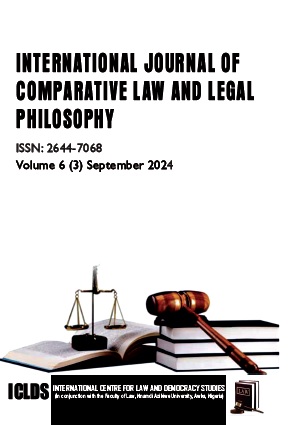PRESIDENTIAL EXECUTIVE ORDER AND DECREE ISSUING AUTHORITY UNDER THE NIGERIAN AND TURKISH PRESIDENTIAL CONSTITUTIONS: A COMPARATIVE ANALYSIS
Keywords:
Presidential Decree, Executive Order, Nigeria, Turkey, Constitutions, ComparisonAbstract
The Republics of Nigeria and Turkey operate presidential constitutions. A necessary incidence of presidentialism is the entrenchment of the doctrine of separation of powers, which is characterised by the division of governmental powers among the three core branches of government, namely legislature, executive and the judiciary. This paper therefore examined the presidential power to participate in law-making function in Nigeria and Turkey. The doctrinal research methodology was utilised and the method of data collection was through textual analysis of both primary and secondary source materials. The paper found that the Constitution of the Federal Republic of Nigeria 1999 (As Amended) [CFRN] grants to the president the implied power to issue executive orders in the implementation of policies of government while the Turkish Constitution expressly empowers the president to issue presidential decrees and by-laws which operate as primary law. It further found that there is a clearer delineation of the scope of presidential decree issuing authority under the Turkish model than is the case in Nigeria. Since it is impracticable to reasonably expect the president to faithfully execute the laws and policies of government without issuing instruments that have the force of law, the paper recommended that the CFRN should be amended to include express provisions authorising the president to issue executive orders within clearly defined parameters, as is the case under the Turkish Constitution.

